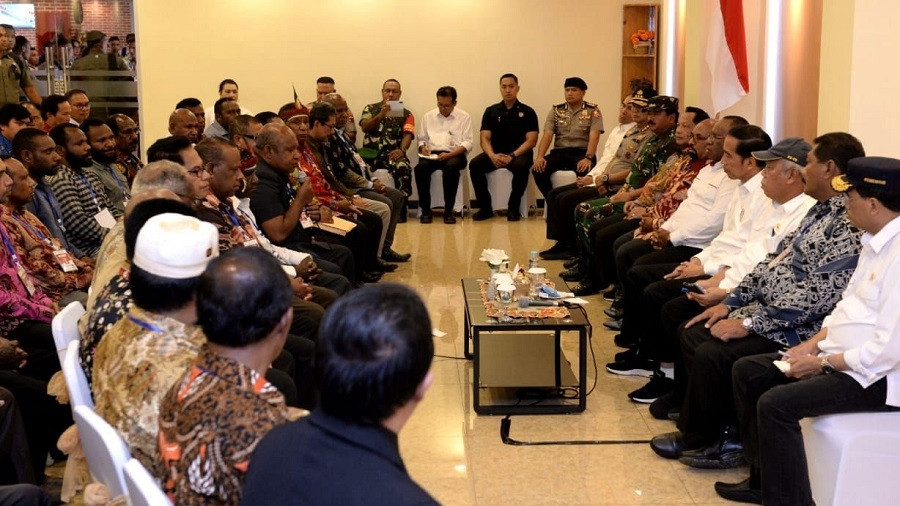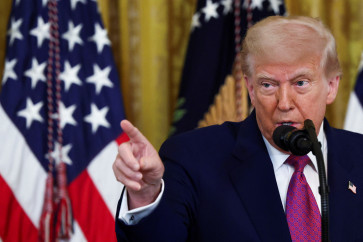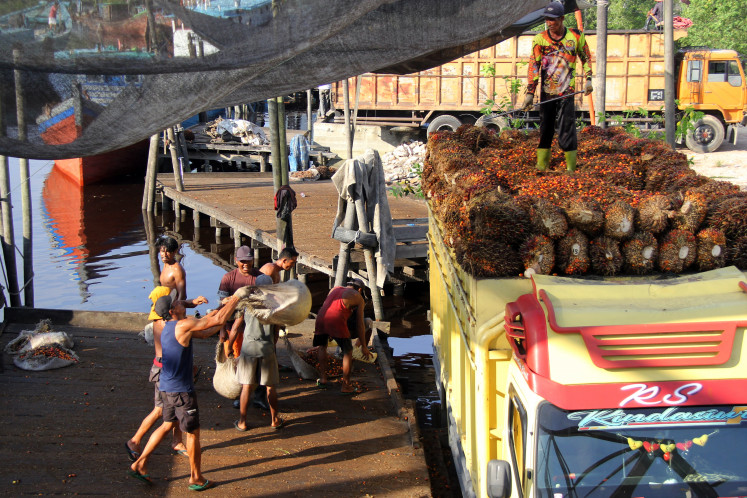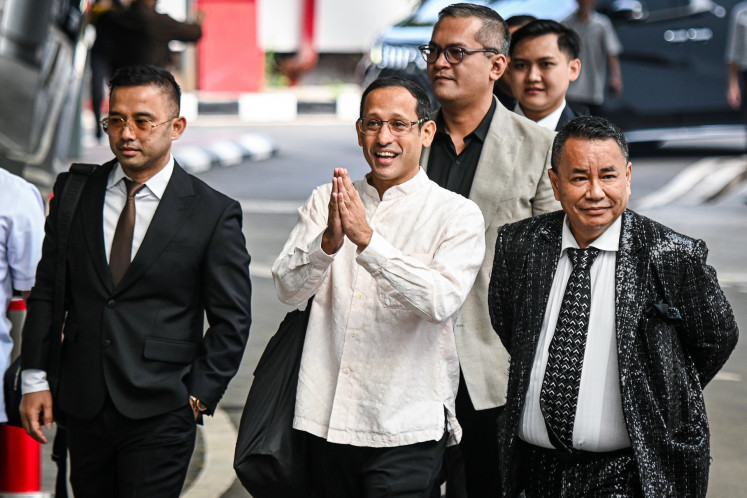Popular Reads
Top Results
Can't find what you're looking for?
View all search resultsPopular Reads
Top Results
Can't find what you're looking for?
View all search resultsHuman rights concerns cast shadow on Papua’s history, legal standing
The emphasis by Papuan separatists on human rights in contesting the controversial history of Papuan integration into Indonesia raises questions about how Indonesian authorities should best handle unrest and conflict in the region, a panel discussion has heard.
Change text size
Gift Premium Articles
to Anyone
T
he history and legal standing of Papua and West Papua, Indonesia’s easternmost provinces, are final and binding, as far as government officials and many leading Papuan figures are concerned.
However, analysts point out that the emphasis on human rights by separatists and their overseas lobbies, who exploit the controversial baggage that comes with the history of Papuan integration, still causes concern about how the Indonesian authorities should best handle the dire situation on the ground.
The separatist conflict in Papua has for decades been a delicate issue with which the Indonesian government has had to contend. This year, authorities labeled armed separatist rebels as terrorists, while lawmakers voted on July 15 to revise and extend for 20 years the 2001 Special Autonomy Law that underpins state-led development in the region.
These actions have added to a long list of contentious issues that rights activists say the government must answer, which include the strong-handed approach by the security apparatus, a lack of accountability for past human rights abuses, allegations of racism and discrimination, and even a COVID-19 outbreak that is slowly gaining momentum.
While Jakarta has poured ample resources into addressing the development gap in Papua, the state is aware that human rights and law enforcement challenges remain, said Tri Tharyat, senior adviser on political, legal and security affairs to the foreign minister.
“Important progress is continuously being made, such as President Joko Widodo releasing a number of Papuan prisoners in 2015, the conviction of individuals guilty of racist acts in Surabaya in 2019, and more recently, the swift action taken by the Indonesian Military to dismiss and punish two personnel for a case of abuse in Merauke,” he said in a keynote speech at The Jakarta Post’s UpClose webinar on Thursday. The last incident referred to the excessive use of violence by Air Force personnel against a disabled man in Merauke this week.
Read also: Air Force apologizes after video of violence against Papuan goes viral
Papua, along with the other regions that make up modern-day Indonesia, formed the Dutch East Indies that came under Japanese imperial rule during the Second World War, at the height of the Indonesian independence movement. Following Japan’s defeat in 1945, the Netherlands attempted to restore control over its former colony. The Dutch and Indonesians eventually signed the New York Agreement on Aug. 15, 1962 that brought then-West Irian under Indonesia’s administrative and territorial rule.
Indonesia consolidated the integration of West Irian in 1969, when select representatives of the local population voted unanimously for Indonesian rule in the controversial but legitimate Act of Free Choice (Pepera), which was monitored by United Nations observers and United States diplomats.
Under the New York Agreement, Indonesia was obliged to “make arrangements [...] to give the people of the territory an opportunity to exercise freedom of choice,” in which consultations should be held with local representative councils on the procedures and appropriate methods “for ascertaining the freely expressed will of the people”.
Pro-independence groups argue that the agreement specifically mentioned that all adults, male and female, who were not foreign nationals, were eligible to participate in the act of self-determination – that is, the 1962 Pepera.
However, out of the 800,000 Papuan population recorded in 1962, only 1,205 people voted in the Pepera, resulting in resentment, even though the election was accepted by the international community under UN General Assembly Resolution 2504, which reaffirmed as legal fact that West Irian had always been a part of a nascent Indonesia.
Jakarta’s legal experts say that Papuans could not legally demand another referendum based on alleged violations of human rights or their political, economic and social rights, because Indonesia has already guaranteed these rights in the Special Autonomy Law, which gave the people of modern-day Papua and West Papua provinces the means to manage the two provinces.
Read also: RI woos South Pacific nations with ‘meaningful’ engagement
Freddy Numberi, a Papuan leader and a former governor of Papua supported this view of Papua’s legal standing, and that Dutch maneuvers at the time resulted in the effective forfeiture of Papuans’ right to self-determination.
Even so, he also suggested that there should have been ways to make the Act of Free Choice more credible.
The Foreign Ministry’s director general for legal affairs and international treaties, Damos Dumoli Agusman, said the New York Agreement was essentially a bilateral dispute settlement between Indonesia and the Dutch and had nothing to do with self-determination in “normal terms”.
“Self-determination is an international law issue, it must be considered in those terms. Unfortunately in many cases observers introduce the term in a very loose manner and even without applying any legal criteria as prescribed by international law,” he said.
Damos suggested further that human rights issues could not be used as justification for self-determination, which was already clearly defined under international law on the pretext of preserving one’s territorial integrity.
Read also: Papua intelligence chief killed in weekend rebel attack
“Self-determination only exists under the colonial context, which Indonesia achieved in 1945,” he said during the webinar.
Richard Chauvel, an Indonesian history professor at Melbourne University, however, pointed out that separatist groups such as the United Liberation Movement for West Papua (ULMWP) had been intricately conflating human rights and self-determination in their campaigns to gain support, especially among Pacific island nations – which are culturally similar to the people of Papua – both in regional forums and at the UN.
“If we look at the sort of arguments that [ULMWP leader] Benny Wenda and others have been using to promote their cause in the Melanesian Spearhead Group, they’re essentially arguments related to the New York Agreement, the Pepera and the broader legal and moral issue of self-determination. Those arguments in essence really haven’t changed since the 1960s and have been an important part of the international lobbying,” Chauvel said on Thursday.
“What does change, and I would argue the dynamic of the ULMWP lobbying campaign, is the issue of human rights abuses, which according to the ULMWP continue to occur, in the sense [that they provide] momentum and energy to the campaign,” he said.










